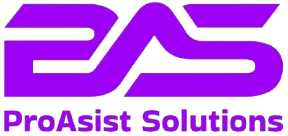Cracking Technical Interviews Across India: Your Comprehensive Guide
Landing a coveted tech job in India’s competitive landscape requires more than just technical prowess. It demands a strategic approach to technical interviews, tailored to the expectations and nuances prevalent across the country. This blog post serves as your comprehensive guide to navigating and conquering these interviews, equipping you with the knowledge and strategies to shine.
Understanding the Indian Tech Interview Landscape
Technical interviews in India often emphasize a strong foundation in computer science fundamentals, problem-solving abilities, and practical application of knowledge. While specific requirements vary between companies and roles, some common themes emerge:
- Focus on Fundamentals: Expect in-depth questions on data structures (arrays, linked lists, trees, graphs), algorithms (sorting, searching, dynamic programming), operating systems, database management systems (DBMS), and networking concepts.
- Coding Proficiency: You’ll likely be asked to write code in one or more popular programming languages like Python, Java, C++, or JavaScript. The emphasis is not just on getting the correct output but also on writing clean, efficient, and well-documented code.
- Problem-Solving Skills: Interviewers assess your ability to break down complex problems, think logically, and arrive at efficient solutions. They are interested in your thought process as much as the final answer.
- System Design (for senior roles): For more experienced candidates, system design rounds are common. These evaluate your ability to design scalable and robust systems, considering factors like performance, reliability, and cost.
- Behavioral Aspects: While the focus is technical, behavioral questions are also crucial. Companies want to understand your communication skills, teamwork abilities, problem-solving approach in real-world scenarios, and cultural fit.
Key Strategies to Ace Your Technical Interviews
Cracking technical interviews across India requires a multifaceted approach. Here’s a breakdown of essential strategies:
1. Master the Fundamentals:
- Data Structures and Algorithms (DSA): This is the bedrock of most technical interviews. Thoroughly understand common data structures and algorithms, their time and space complexities, and when to apply them. Practice solving a wide range of problems on platforms like LeetCode, GeeksforGeeks, and InterviewBit.
- Example: Be prepared to implement a linked list, explain the difference between various sorting algorithms (e.g., merge sort vs. quicksort), or solve a graph traversal problem.
- Programming Language Proficiency: Choose one or two languages relevant to the roles you’re targeting and develop a strong command of their syntax, core concepts, and standard libraries. Be ready to write code snippets and explain your logic clearly.
- Example: If applying for a Java developer role, be comfortable with concepts like object-oriented programming, inheritance, polymorphism, and exception handling.
- Operating Systems: Understand fundamental concepts like process management, memory management, concurrency, and file systems.
- DBMS: Be familiar with relational databases, SQL (writing queries, understanding joins), database design principles, and NoSQL concepts if relevant to the role.
- Networking: Grasp basic networking concepts like TCP/IP, HTTP, DNS, and network protocols.
2. Practice Problem-Solving Rigorously:
- Consistent Practice: Regularly solve coding problems of varying difficulty levels. Focus on understanding the underlying principles and techniques behind each solution.
- Think Out Loud: During practice and in the actual interview, verbalize your thought process. Explain your approach, the trade-offs you’re considering, and how you arrive at a solution. This allows the interviewer to understand your reasoning and provide guidance if needed.
- Explore Different Approaches: For each problem, try to think of multiple solutions and analyze their time and space complexities. This demonstrates a deeper understanding and problem-solving agility.
- Learn Problem-Solving Techniques: Familiarize yourself with common techniques like divide and conquer, greedy algorithms, backtracking, and dynamic programming.
3. Sharpen Your Communication Skills:
- Clarity and Conciseness: Articulate your ideas and solutions clearly and concisely. Use precise language to explain technical concepts.
- Active Listening: Pay close attention to the interviewer’s questions and prompts. If you’re unsure about something, don’t hesitate to ask clarifying questions.
- Visual Aids: If appropriate, use diagrams, flowcharts, or pseudocode to illustrate your solutions and make them easier to understand.
- Humility and Willingness to Learn: If you don’t know the answer to a question, it’s okay to admit it. Express your willingness to learn and how you would approach finding the solution.
4. Prepare for Different Interview Rounds:
- Coding Rounds: These might involve online assessments or live coding exercises. Practice typing code quickly and accurately without relying heavily on IDE auto-completion.
- Technical Discussions: Be prepared to discuss your past projects, the technologies you’ve worked with, and the challenges you faced. Highlight your contributions and the lessons you learned.
- System Design Rounds (for senior roles): Practice designing systems for scalability, reliability, and performance. Consider different architectural patterns and trade-offs. Resources like “Grokking the System Design Interview” can be helpful.
- Behavioral Interviews: Prepare for common behavioral questions using the STAR method (Situation, Task, Action, Result) to structure your answers. Think about examples that showcase your teamwork, problem-solving, leadership, and adaptability.
5. Tailor Your Preparation:
- Research the Company and Role: Understand the company’s domain, products, and the specific requirements of the role you’re applying for. Tailor your preparation to align with their tech stack and focus areas.
- Review the Job Description: Pay close attention to the keywords and skills mentioned in the job description and ensure you highlight relevant experience and knowledge during the interview.
6. Practice Mock Interviews:
- Simulate the Real Environment: Practice with friends, mentors, or online platforms that offer mock interviews. This helps you get comfortable with the interview format, time constraints, and pressure.
- Seek Feedback: Ask for constructive feedback on your technical skills, communication, and overall performance. Use this feedback to identify areas for improvement. Platforms like Pramp and Interview Kickstart can facilitate mock interviews.
7. Stay Calm and Confident:
- Manage Nervousness: It’s natural to be nervous, but try to stay calm and composed during the interview. Take deep breaths and focus on answering the questions to the best of your ability.
- Project Confidence: Even if you’re unsure about an answer, try to articulate your thought process confidently. A positive attitude and willingness to engage can leave a good impression.
Additional Tips for the Indian Context
- Be Prepared for Common Indian Interview Patterns: Some companies in India might have specific patterns or frequently asked questions. Researching company-specific interview experiences can be beneficial.
- Highlight Relevant Projects and Internships: Emphasize projects or internships where you’ve applied your technical skills to solve real-world problems.
- Showcase Your Passion for Technology: Demonstrate genuine interest in technology and a desire to learn and grow.
Conclusion
Cracking technical interviews in India is a challenging but achievable goal. By mastering the fundamentals, practicing problem-solving diligently, honing your communication skills, and tailoring your preparation, you can significantly increase your chances of success. Remember that each interview is a learning opportunity, so stay persistent, learn from your experiences, and approach each one with confidence. Good luck!
![Untitled design (1)[1]](https://proasistsolutions.com/wp-content/uploads/2021/04/Untitled-design-11-e1744036396309.png)



